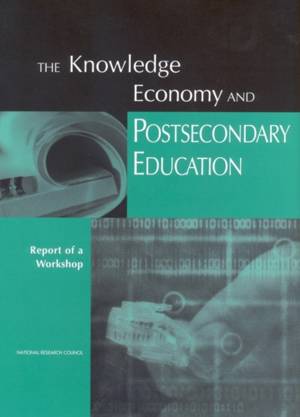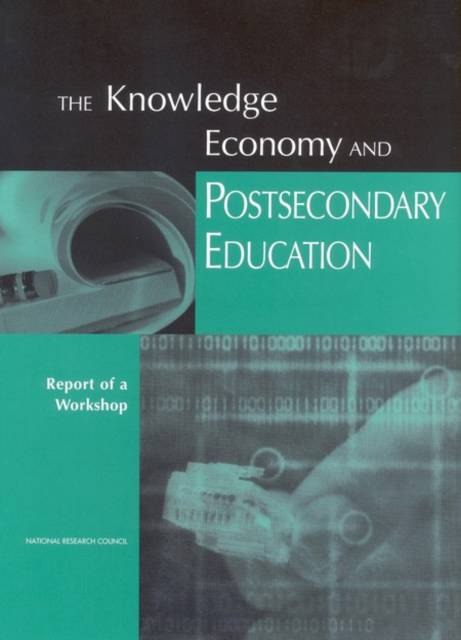
- Afhalen na 1 uur in een winkel met voorraad
- Gratis thuislevering in België vanaf € 30
- Ruim aanbod met 7 miljoen producten
- Afhalen na 1 uur in een winkel met voorraad
- Gratis thuislevering in België vanaf € 30
- Ruim aanbod met 7 miljoen producten
Zoeken
The Knowledge Economy and Postsecondary Education
Report of a Workshop
National Research Council, Division of Behavioral and Social Sciences and Education, Center for Education, Committee on the Impact of the Changing Economy on the Education
Paperback | Engels
€ 68,45
+ 136 punten
Omschrijving
The Workshop on the Knowledge Economy and Postsecondary Education documents changes seen in the postsecondary education system. In her report Lisa Hudson focuses on who is participating in postsecondary education; Tom Bailey concentrates on community colleges as the most responsive institutions to employer needs; Carol Twigg surveys the ways that four-year institutions are attempting to modify their curricular offerings and pedagogy to adapt those that will be more useful; and Brian Pusser emphasizes the public's broader interests in higher education and challenges the acceptance of the primacy of job preparation for the individual and of "market" metaphors as an appropriate descriptor of American higher education. An example of a for-profit company providing necessary instruction for workers is also examined.
Richard Murnane, Nancy Sharkey, and Frank Levy investigate the experience of Cisco high school and community college students need to testify to their information technology skills to earn certificates. Finally, John Bransford, Nancy Vye, and Helen Bateman address the ways learning occurs and how these can be encouraged, particularly in cyberspace.
Richard Murnane, Nancy Sharkey, and Frank Levy investigate the experience of Cisco high school and community college students need to testify to their information technology skills to earn certificates. Finally, John Bransford, Nancy Vye, and Helen Bateman address the ways learning occurs and how these can be encouraged, particularly in cyberspace.
Specificaties
Betrokkenen
- Auteur(s):
- Uitgeverij:
Inhoud
- Aantal bladzijden:
- 216
- Taal:
- Engels
Eigenschappen
- Productcode (EAN):
- 9780309082921
- Verschijningsdatum:
- 11/05/2002
- Uitvoering:
- Paperback
- Formaat:
- Trade paperback (VS)
- Afmetingen:
- 215 mm x 279 mm
- Gewicht:
- 603 g

Alleen bij Standaard Boekhandel
+ 136 punten op je klantenkaart van Standaard Boekhandel
Beoordelingen
We publiceren alleen reviews die voldoen aan de voorwaarden voor reviews. Bekijk onze voorwaarden voor reviews.








